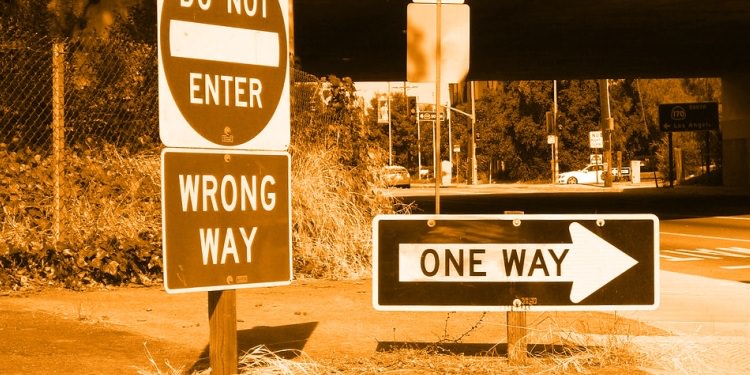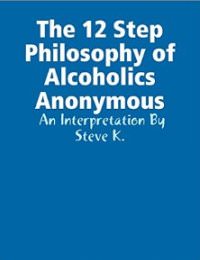A 12 Step Agnostic

By Steve K.
As a child I had the common experience of growing up in a home with an alcoholic parent. My stepfather was a daily drinker who was incapable of forming a loving relationship with me or my younger brother. He seemed to resent us instead and was emotionally abusive when he’d been drinking.
Things got worse as I got older and my family moved into a “public house” (bar) when I was about 13 years old. My parents argued a lot and there was physical violence at times. My growing unhappiness and insecurity at home, a deep sense of rejection and the easy availability of alcohol, set the scene for my own alcoholism and drug misuse.
I started drinking regularly from the age of 15 and would get drunk at every opportunity. I left school at 16 and then spent the best part of the next 10 years in and out of employment, hospitals, courts, police cells and prison. By the age of 25 I wanted to stop drinking and taking drugs but seemed unable to do so for any significant amount of time. So began my journey into the beginnings of some sort of recovery as I then found the fellowship of Alcoholics Anonymous.
At my first meeting of AA, I understood that the goal was complete abstinence. I knew this was the only option for me but at the same time did not fully believe I was an alcoholic. The room was full of people much older than me who’d been drinking for a lot longer and were clearly “proper” alcoholics. However, I wanted abstinence so kept attending meetings.
I also started reading the Big Book and I realised that belief in God was a big part of the solution. At the time I was open to this suggestion although it felt awkward to me as I wasn’t brought up in a religious home. I don’t remember religious or spiritual issues ever being mentioned by my parents and only came across Christianity in morning assembly at primary school, with the compulsory singing of hymns. In saying this I was clearly conditioned with basic Christian ideas about God, as are most growing up in western society.
After several months of attending AA and sometimes still drinking due to my lack of acceptance, I started to pray in the mornings regularly. This felt a little embarrassing to me and not completely genuine as I didn’t feel any connection. I continued praying in the hope that it would free me of wanting to drink, which was becoming a very conscious struggle the harder I tried to remain abstinent. I was starting to think that I was in the category of being “constitutionally incapable of being honest with myself” and even more sure that I suffered “from grave emotional and mental disorders”. (This was in fact true!)
The torture of my obsession with alcohol continued into my early 30’s and by then the realisation came that if I wanted freedom from it, I must never drink again. By this stage I had been formally through the program more than once with different sponsors, but didn’t connect with the spirituality of the steps or God. However, I managed to stay sober for a period of 5 years, still attending regular meetings, but I was suffering with an ongoing depressive illness and other physical health problems and was far from a contented sobriety. In retrospect, I can now see that the relationship I was in at the time was enabling me to remain sober and when this ended so did my period of sobriety.
I continued to struggle with the mental obsession to drink for another couple of years and, although mostly remaining sober, I got drunk on two or three occasions. My last drink was on the 2.7.2005.
During the 12 months that followed my last drink the obsession with alcohol seemed to leave me and I started to feel secure in being sober. As my confidence in sobriety grew so did my questioning of the 12 steps and what I perceived as religious dogma. I became increasingly disillusioned and hostile towards the literal meaning and language of the program, to the extent that I was pushing AA friends away due to my negativity.
I then had to undergo a course of significant medical treatment for Hepatitis C, which I had contracted in my early 20’s through intravenous drug use. This treatment affected my energy levels, motivation and emotional wellbeing and my attendance at meetings was reduced to the odd occasion. My belief in the 12 steps continued to deteriorate and I became very isolated and depressed.
I got to the stage of considering stopping going to meetings completely, as I felt disingenuous at them and when I did attend would cross share attempting to undermine people’s beliefs. I realised that unless I could find a genuine relationship with the 12 steps, I would need to leave the fellowship.
The inspiration to look online for some literature which would help me came suddenly one day, and I came across Ernest Kurtz’s, Not-God, A History of Alcoholics Anonymous. This book is a detailed history and study of AA, and while confirming the Christian influence upon the 12 steps, it also gave me a good understanding of the liberal principles of AA philosophy. I started to develop a new appreciation of the steps and fellowship.
So began a twelve month study of the program through various authors, as well as revising some step 4 inventory work. I attended a lot of meetings during this period and started to relate to the steps in what I would describe as a spiritual but non-theistic way. I began to see clearly the underlying moral or spiritual principles inherent within the steps and their transformative power. I began to genuinely believe in them and saw the importance of step 12.
My new relationship with the 12 steps slowly brought with it a more positive commitment towards the fellowship and helping others. I started to sponsor and became the secretary of a new meeting.
My commitment to and appreciation of the steps and fellowship continued to develop with my service to others, as well as bringing improvements to my mental and emotional wellbeing, despite still suffering from chronic illnesses.
I have become increasingly secure in my sobriety over the years and thoughts of drink almost never enter my mind. The step 10 promise in the Big Book, p. 84 – 85, 3rd edition, in relation to the insanity of the obsession with alcohol has truly come about for me: “For by this time sanity will have returned. We will seldom be interested in alcohol. If tempted, we recoil from it as from a hot flame. We react sanely and normally, and we will find that this has happened automatically”.
I am now increasingly comfortable relating to the 12 steps from a mainly humanistic viewpoint, although this extends to include spirituality. I don’t believe in the traditional idea of God and apply my own concepts in terms of making sense of the 12 steps as suggested. This approach towards 12 step recovery is legitimate as the philosophy of the program is based upon liberal and pragmatic, as well as spiritual, principles. An example of this liberal philosophy can be found on page 47, 3rd edition, of the Big Book… “When, therefore, we speak to you of God, we mean your own conception of God. This applies, too, to other spiritual expressions which you find in this book. Do not let any prejudice you may have against spiritual terms deter you from honestly asking yourself what they mean to you.”
It’s important to remember as stated in the 12 steps & 12 traditions, p. 26, “First, Alcoholics Anonymous does not demand that you believe anything. All of its Twelve Steps are but suggestions.”
If you don’t believe in God, I suggest using your imagination in order to relate to the program in a way that is meaningful to you. I relate to spirituality in terms of moral virtues such as honesty, compassion, kindness and love with the emphasis on a “way of being” or “way of life” and developing the right attitude.
It also includes practices such as self-reflection, prayer and meditation, in order to grow in terms of being virtuous and to develop my consciousness in relation to the mystery of life. I like the saying “God is Love”, as for me this expresses that “it works through people”; spiritual principles are practiced through the fellowship of AA, in the goal of helping each other.

Steve K has recently started a recovery blog, 12stepphilosophy, and has self-published an eBook entitled “The 12 Step Philosophy of Alcoholics Anonymous: An Interpretation by Steve K.” Visit his website and you can download a copy of his book for free!
Steve’s first article on AA Agnostica, Practising Virtue and 12 Step Recovery, was published on November 23, 2014.

























Great piece. Very helpful to me. I am nearly 1 year sober, making strides on finding my own AA in the rooms. The higher power thing stalled me for a bit on step 3, but I have made my way through the steps now … and I am grateful for these reflections.
Thanks, Steve K.
Your experience with AA has been my experience with AA — I have successfully been able to adapt my understanding of the inherent humanistic, moral and ethical principles of the 12 steps in a way that honestly reflects what I believe, which is not dependent on any particular religious orientation, but compatible with all of the world’s wisdom traditions.
AA is killing itself and killing many alcoholics who leave the rooms of AA because of the gathering dogmatic insistence throughout many regions of North America that the only way a “real alcoholic” can recover is to follow “precisely” the directions written in the Big Book, which follow the orthodox precepts of the evangelical, pietistic Oxford Group in Akron in 1930s.
Thank goodness our trusted servants at the Grapevine, GSO and the comparable levels of service in Great Britain recognize this and are seeking to include our unorthodox experience, strength and hope of recovery as atheists and agnostics.
I really recommend Steve K’s book. Economy of words keeps the simple ideas simple but puts Steve’s own take on AA-style recovery.
Steve, your story reminds me of Jim B in that you never betrayed your core-beliefs; you simple stopped fighting anyone or anything and found a unique place for yourself in your local AA life.
In your book you have an eloquent explanation of an expression in the rooms, “We don’t think our way into right acting; we act our way into right thinking.” You got a step further and suggest that our behaviors (or behaviours to respect the King’s English) change who we are. While that might sound like smoke-and-mirrors, we see that you draw from your own experience – not some intellectual process.
A poster floating around Facebook right now makes a similar point: “Your beliefs don’t make you a better person, your behavior does.”
Many small actions create meaningful change. These initiatives from GSO (UK) to create an atheist/agnostic pamphlet and AA Grapevine to widen the supply of secular ESH stories are the result of many initiatives from individuals that inspire and inform other.
Thanks for putting your thoughts into words and sharing them.
I’m 1 and 1/2 years sober working my way through the steps slowly. I found that piece helpful.
I had forgotten it was already on my Kindle. Thanks for the reminder. Your story resonates in so many ways with my feelings and experience. Thanks for taking the time and effort to share!